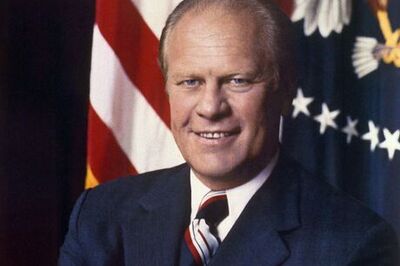
views
Real estate requirements of manufacturing facilities of 4-wheeler and 2-wheeler electric vehicles (EV) are estimated to be around 13 million square feet by 2030 as a result of the government’s EV adoption targets, according to a report by real estate consultant CBRE. It said EV battery manufacturing facilities would also increase exponentially and require 2,400 acres of land to accommodate the production of 200 gigawatts-hour (GWh) of batteries by 2030.
“By 2030, this real estate requirement will allow a production capacity of approximately 4 million units of 4Ws and 23 million units of 2Ws. Built-to-suit (BTS) and leased facilities are largely preferred by EV manufacturers at present in India due to ease of capital deployment, flexibility in lease terms, speed to market and location advantages. However, an owned facility provides more scope for customisation, save monthly rental outgoings and has better prospects for land price appreciation,” CBRE said in the report.
It also said several policy enablers by state and union governments have enabled the creation of an indigenous EV manufacturing ecosystem by incentivising fresh investments from global and domestic players. During the 2020-23 period (YTD), Maharashtra and Tamil Nadu led EV investments with a 15 per cent share each of the cumulative $28.8 billion investment. Meanwhile, Karnataka accounted for an 11 per cent share, Gujarat 8 per cent, and Uttar Pradesh and Telangana recorded a 7 per cent share each.
Key Investment Announcements In the EV Sector During Q1 2023
- Maharashtra: Gogoro Belrise Industries announced an investment of about USD 2.5 bn for charging infrastructure manufacturing facility.
- Tamil Nadu: Ola Electric announced an investment of about USD 0.9 bn for a battery manufacturing facility.
- Uttar Pradesh: Tauschen E-mobility announced an investment of about USD 0.2 bn for an EV manufacturing facility.
“For the current year, the EV sector has recorded investment announcements of about $6.2 billion to date. The year 2022 witnessed strong traction, with global and domestic players announcing investments of over $17.1 bn in the EV industry, a y-o-y increase of about 287 per cent compared to $4.4 billion in 2021. In the same period, more than half of the investments were driven by EV component manufacturers,” CBRE said.
EV Investment Trends Between 2020 And H1 2023
EV manufacturers and multiple e-mobility start-ups are concentrating their presence in the primary automotive clusters in India. Uttar Pradesh took the lead in registered EV annual sales in 2022 with a 16 per cent share, closely followed by Maharashtra with a 13 per cent share and Karnataka with a 9 per cent share. These three states together dominated India’s EV sales in 2022, accounting for about 40 per cent of the overall sales volume.
The Indian EV market is expected to grow at a compounded annual growth rate (CAGR) of about 49 per cent between 2021-30 and cross annual sales of 17 million units by 2030.
Anshuman Magazine, chairman & CEO (India, South-East Asia, Middle East & Africa) of CBRE, said, “As we look ahead, the intersection of real estate and the EV sector presents exciting opportunities and challenges. The rapid growth in EV manufacturing is set to revolutionise the automotive industry, and it will undoubtedly have a profound impact on the real estate market.”
By 2030, we anticipate a surge in demand for real estate, with a requirement of about 13 million sqft dedicated to EV manufacturing facilities alone. The cumulative investment value in EVs over the last three years demonstrates the immense financial commitment and confidence placed in this sector. This investment not only signifies the financial potential of EVs but also underscores the transformative power they hold in shaping the future of mobility.
Ram Chandnani, managing director (advisory & transactions services) of CBRE India, said, “The future of the EV industry is bright, and real estate will play a pivotal role in shaping its trajectory. As demand for EV manufacturing facilities, charging infrastructure, and associated services expands, the real estate sector will need to adapt and provide the necessary infrastructure and spaces to accommodate this growth.”


















Comments
0 comment